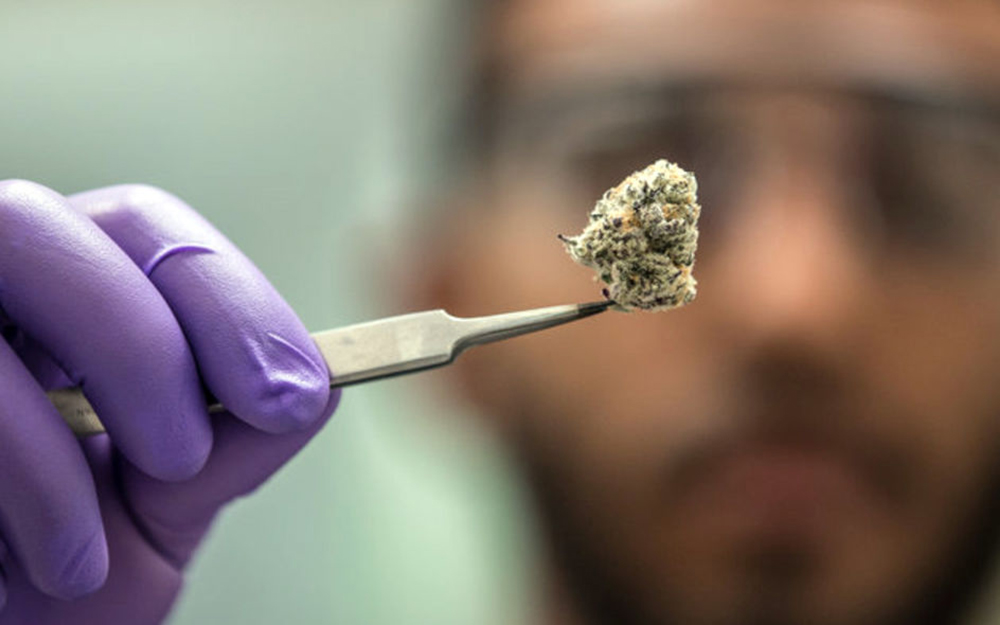
BY RUTH HILL R.N.
Today I am writing about the plethora of scientific knowledge on medical marijuana (MM), seemingly protected by an invisible vail of secrecy, preventing disseminated into my nursing journals. Supported by the lavash advertisements for new pharmaceuticals with pages of lethal side effects, the articles end against using MM until we get more research. Studies fail to be disseminated to physicians, nurses, and Congress.
There are more users of safe MM than users of chemotherapy, protein pump inhibitors and probiotics but we continue to use those drugs. The Marijuana Policy Project, as of September 2018, reports there are 2.8 million legal medical marijuana users in the U.S. and climbing.
Of the nine bills in the Senate and House of Representatives, only one, H.R. 1227 Ending Federal Marijuana Prohibition Act of 2017, has the most activity. This was introduced by a Republican, Rep. Garrett from VA. There are 39 cosponsors, 6 Republican, 33 Democrats. While Congress dithers on reclassifying marijuana other countries in the world are going full steam ahead with research. Where is this research on safe use of MM? Let me indulge you.
The National Institutes of Health (NIH) has given ten million a year over a twenty-year period to Raphael Mechoulam, an Israel scientist, for the purpose of researching the Cannabis Sativa S. plant. His research lead to the discovery of a new regulatory system in mammals: the endocannabinoid system (ECS). The ECS makes on demand when needed, the same chemical molecules tetrahydrocannabinol (THC) and cannabidiol (CBD) found in the cannabis plant.
Our premier research resource is PubMed, a service of the National Library of Medicine. It includes over 15 million citations for biomedical articles back to the 1950s. The latest on cannabis is published in the Eur J Intern Med. 2018 Mar;49:44-50. The study was done by Israel scientists, (are you surprised?) lasted over forty-four months and interviewed 2436 patients over the age of 65 in their specialized cannabis clinic. A self-reported questionnaire asked patients to report pain intensity, quality of life and adverse events for a six-month period.
Patients came to the clinic to alleviate cancer symptoms, Parkinson’s disease post-traumatic stress disorder ulcerative colitis Crohn’s disease, and multiple sclerosis. After six months 93.7% of the respondents reported pain levels were reduced from a median of 8 on a scale of 0-10 to a median of 4. Most common adverse events were: dizziness (9.7%) and dry mouth (7.1%). After six months, 18.1% stopped using opioid analgesics or reduced their dose.
Another scientific resource is The Cochrane Library (CL). Per their website, CL is a collection of databases that contain high-quality, independent evidence to inform healthcare decision making. Using this website researchers collected data on Cannabis-based medicines for chronic neuropathic pain in adults. Sixteen studies with 1750 participants of two to twenty-six weeks compared an oromucosal spray with a plant-derived combination of THC and CBD. The results showed cannabis is a safe alternative to pharmaceuticals. Every day I find new and exciting science that pushes the boundaries of this misunderstood herb used for over 5000 years as medicine.
According to the CDC there are fifty million adults who suffer from chronic pain in America. As more and more physicians stop prescribing opioids patients will be forced out of necessity into the cannabis market. I am excited to announce the National State Boards of Nursing published in July 2018 nursing guidelines for medical marijuana. Nurses start getting CE’s for MM use.
Lastly, I share news of the establishment of a wellness clinic in Leisure World Village located in Laguna Hills, CA by Israeli scientists who will research the use of MM to their senior clients. Leisure World Village has a population of 18,500 seniors over the age of 55. Israel again. Regardless of the obstacles from the FDA there is a tsunami of forces pushing the horizon of cannabis knowledge further and further into new avenues of discovery. Do you have the will to find it and push Congress to start making America the leader in MM research?
Ruth Hill is a retired hospice nurse who consults on medical cannabis use. www.holisticcaring.com








































